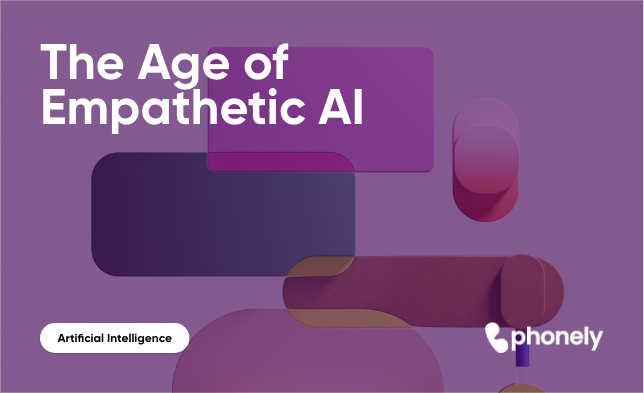Artificial Intelligence (AI) has revolutionized the way we interact with machines. From chatbots to virtual assistants, AI has become an integral part of our daily lives. However, one aspect that has been lacking in AI development is empathy. Traditional AI systems have been criticized for their inability to understand and respond to human emotions. But that’s changing. Recent advancements in AI research have focused on developing empathetic AI systems that can communicate with emotional intelligence. In this blog post, we’ll explore how AI is being developed to communicate with empathy.
Understanding Empathy in AI
Empathy is the ability to understand and share the feelings of another being. In the context of AI, empathy refers to a system’s ability to recognize and respond to human emotions. Empathetic AI systems can understand the emotional tone and sentiment behind human communication, enabling them to provide more personalized and compassionate responses.
Developing Empathetic AI
Several techniques are being used to develop empathetic AI systems:
1. Emotion Recognition: AI systems are being trained to recognize emotions through facial recognition, speech patterns, and text analysis. This enables them to understand the emotional tone behind human communication.
2. Natural Language Processing (NLP): NLP is being used to analyze human language and detect emotional cues. This enables AI systems to respond in a more empathetic and personalized manner.
3. Affective Computing: Affective computing involves developing AI systems that can recognize and simulate human emotions. This enables AI systems to respond in a more empathetic and emotionally intelligent way.
4. Cognitive Architectures: Cognitive architectures are being designed to mimic human emotional intelligence, allowing AI systems to understand and respond to emotional cues.

Applications of Empathetic AI
Empathetic AI systems have numerous applications across various industries:
1. Customer Service: Empathetic AI-powered chatbots can provide more personalized and compassionate customer service, leading to higher customer satisfaction.
2. Healthcare: Empathetic AI systems can be used to provide emotional support and comfort to patients, improving mental health outcomes.
3. Education: Empathetic AI systems can provide personalized learning experiences, adapting to the emotional needs of students.
The benefits of empathetic AI are multifaceted:
1. Improved User Experience: Empathetic AI systems can provide more personalized and engaging interactions, leading to higher user satisfaction.
2. New applications: Empathetic AI opens up a new realm of possibilities. Services that require an understanding of human emotion can now be made instantly available.
3. Enhanced Decision-Making: Empathetic AI can provide more accurate and informed decision-making, taking into account human emotional factors.
Challenges and Limitations
While empathetic AI systems have immense potential, there are challenges and limitations to their development:
1. Data Quality: The quality of training data significantly impacts the ability of AI systems to recognize and respond to emotions.
2. Biases: AI systems can perpetuate biases and stereotypes if not designed carefully.
3. Ethical Considerations: Empathetic AI systems raise ethical concerns around privacy, security, and accountability.
Conclusion
The development of empathetic AI systems is a significant step forward in creating more human-like interactions with machines. While is a young technology the progress is already immense and the potential benefits, immense. As AI continues to evolve, we can expect to see even more emotionally intelligent AI systems that transform the way we interact with machines.
Ready to experience the power of empathetic AI? Contact Phonely to learn more about our AI-powered phone support systems.









